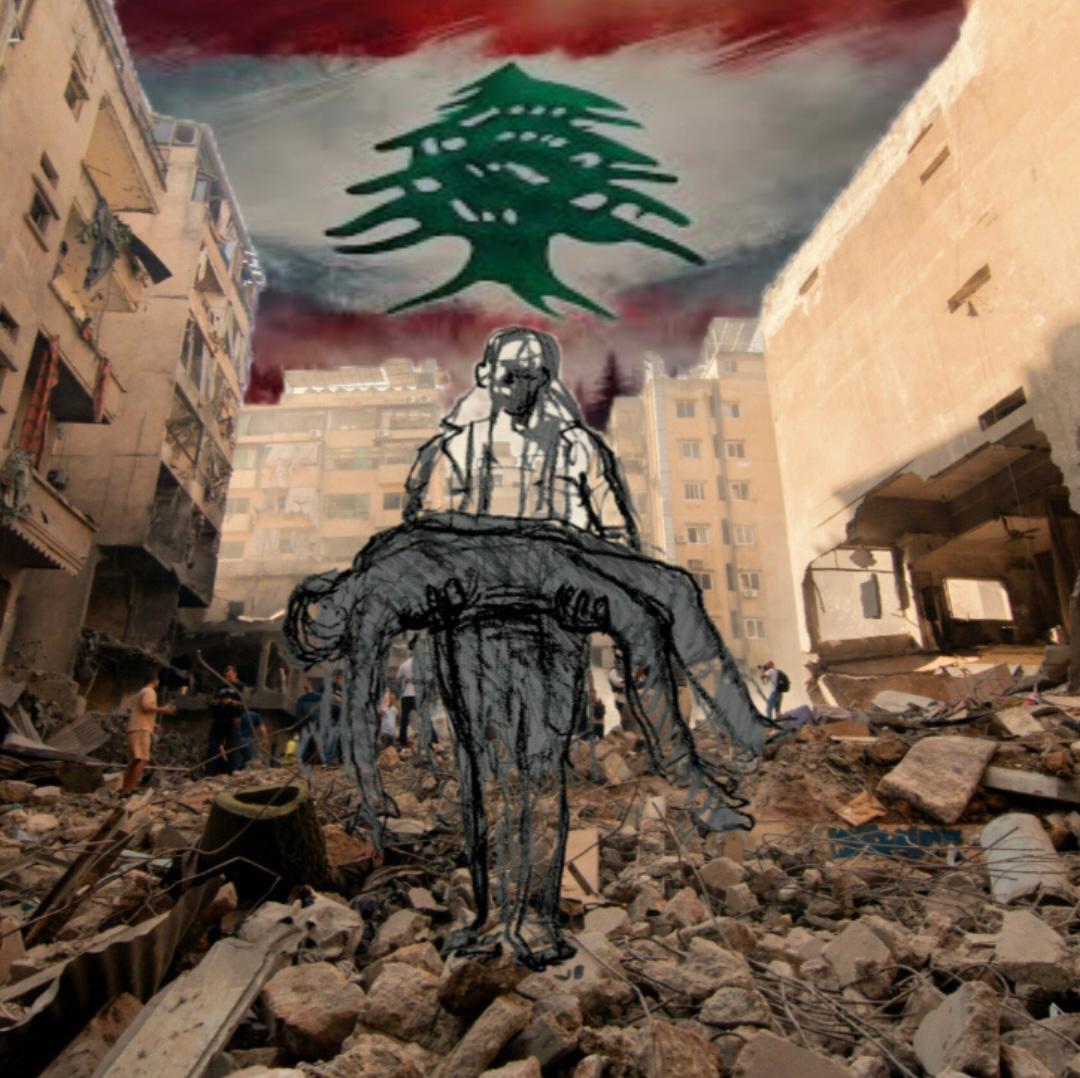Strategizing from 7 cities across the globe
The Price of a Corpse: The Post War Changes of Economic Flow
After a year of relentless killing, the international community failed to stop genocide. Even after many condemnations and calls for a stop, no real pressure was actually put on Israel. Throughout the year, many actions inquired the intent of the world to end the war: South Africa sued Israel in a case before the ICJ on the basis of genocidal intentions and many countries cut ties with Israel, including Bolivia, Belize, and even Turkey and Columbia
WARECONOMICSMIDDLE EASTINTERNATIONAL LAW
Sireen Hajaig, John Gassoub
11/18/20246 min read


According to Israeli estimates, Hamas militants killed 1,200 people and took 253 prisoners when they rushed into southern Israel on October 7. Since then, Israel and Hamas have been at war. More than 41,500 Palestinians have been killed in Israel's military onslaught in Gaza, according to Gaza health officials. The enclave's 2.3 million residents have been forced to leave their homes, and a large portion of the land has been left in ruins. The worst chapter to date in the long-running conflict between Israelis and Palestinians that has raged for seven decades and destabilized the Middle East is the war in Gaza. A parallel confrontation has also dramatically escalated in recent months, a similar war across Israel's border with Lebanon has also seen a significant escalation with Hezbollah, an armed movement backed by Iran, claiming to be fighting in sympathy with the Palestinians.
Recently, Israeli airstrikes targeted roughly ten homes in Jabalia, northern Gaza, where a siege started 20 days ago, killing and injuring more than 150 Palestinians on the evening of 24 October, 2024. Over 150 people have been killed and injured in a horrifying bloodbath that is taking place in Jabalia as a result of Israeli shelling. In a statement, the Gaza civil defense said, "No one is taking action to save them." The residences of the Najjar, Abu Al-Ouf, Salman, Hijazi, Abu Al-Qumsan, Aqel Abu Rashid, Abu Al-Tarabish, Zaqoul, and Shaalan families were also attacked by the Israeli force, the statement continued. The Israeli occupation attacked the Beirut Lahia project building a few days ago without warning, according to the few survivors of the Abu Nasr family. The survivors told Al Mayadeen that 250 displaced Palestinians were being housed in the building. "We had to walk around the bodies of our loved ones, and we buried 117 members of our family," they stated.
Nearly a year into its conflict with the Shiite group Hezbollah, which began shortly after Hamas's October 7, 2023 attacks and Israel's following offensive in Gaza, Israel declared that its troops had crossed the border into southern Lebanon on October 1. Later, the Israeli army claimed to have been conducting covert operations in southern Lebanon for months, but this operation appears to be far larger in scope. Two weeks prior to making its announcement, Israel had drastically intensified its war with Hezbollah, launching massive airstrikes in parts of the Bekaa Valley, southern Lebanon, and the southern suburbs of Beirut, as well as setting off explosives it had implanted in the group's communications devices. Hundreds of Hizbollah party cadres were reportedly killed or injured in the prior attacks. Many of the group's top leaders, including Secretary-General Hassan Nasrallah, were eliminated by Israel. Numerous bystanders were also killed and injured in both attack rounds.
The conflict between Israel and Hamas in Gaza is intertwined with the conflict between Israel and Hezbollah. Shortly after the latter began, Hezbollah declared it was establishing a “support front” for its allies Hamas. The militia launched rockets against Israeli military positions in the Shebaa Farms, which Israel believes is part of the occupied Golan Heights, and which the former claims is part of Lebanon. Israel retaliated. This has expanded to a full scale war, with more than a million five hundred displaced, more than three thousands martyred and more than twenty thousand injured. People are on the streets or overcrowded living in schools or small apartments, cramped, and can barely afford food and medication.
After a year of relentless killing, the international community failed to stop genocide. Even after many condemnations and calls for a stop, no real pressure was actually put on Israel. Throughout the year, many actions inquired the intent of the world to end the war: South Africa sued Israel in a case before the ICJ on the basis of genocidal intentions and many countries cut ties with Israel, including Bolivia, Belize, and even Turkey and Columbia, who joined South Africa’s lawsuits against Israel. On top of all of that, many emergency meetings in the Security Council have been made. However, they were all in vain, as they led nowhere. This was due to the veto vote incessantly used by the United States, who “defends Israel’s right of self defense” and who has sent Israel almost 18 billion dollars in aid to arm them. During the first few months of the Gaza/Israel war, the whole world was against Gaza, and to some extent justified Israel’s war crimes. But with time, tables have turned and it became clearer by the day that the response was unproportionate. Gradually, more countries turned against Israel. Manifestations erupted all over the world; in the UK, the biggest riot came about where more than a million people took to the streets to protest the UK’s funding of the war. Unfortunately, even with all the uprisings no results have come to light, Gaza’s situation kept on deteriorating. Regarding the Arab countries, many believe that the former allies of Palestine have given up on them. Jordan and Egypt, after normalizing ties with Israel, have not been intervening nor have put any pressure on them. It is the same case with Saudi Arabia and the GCC, who have not really exercised any form of sanctions on Israel. It was only Yemen who was sending what drones and missiles it had to show support for Palestine.
As we mentioned before, Lebanon’s involvement in the war is not new, but has expanded in the last two months to become a full blown war. Even though we hoped that the world would react more harshly against Israel, the response remains similar to the one in Gaza. However, we can undeniably see that there was a bit more effort. There were still calls for condemnations and ceasefires and big riots in several countries in the world. Fortunately, many powerful countries like France stood up for Lebanon. On several occasions Jean-Noël Barrot, France’s foreign minister, visited Lebanon, to express their solidarity with Lebanon. France also called for an arms embargo on Israel and did not allow Israel to participate in the Euronaval arms exhibit that took place. And lastly, the country has searched for peace as it collaborated with the US to reach a deal that could find peace and stability on both sides of the conflict.
As for America, it has also taken strong initiative in trying to reach a ceasefire. Amos Hochstein, a security official and diplomat who was the negotiator between Israel and Lebanon, has visited Beirut many times during the year long conflict to reach a solution between the two countries. Condemnations also amplified against Israel when the news of injured UNIFIL officers went out. All organs of the U.N. spoke about the deterioration of the situation within many sectors as the war progresses. As it was during the Gaza war, many countries sent aid to Lebanon to try and help the situation. It is also believed that Jews are no longer safe anywhere in the world. Last week, on November 7, during a football game on November 7, Israel’s Maccabis were chanting in a stadium “we are going to kill all Arabs”. This sparked a rage, and they were attacked by Arabs in the country, heavily injuring them. This was classified under antisemitism, but it is not. It only reflects the world’s rage against all Israeli atrocities that do not seem to stop. In many countries, Zionists have been targets of attacks. Maybe it is the civilians who are trying to put pressure on the Israeli government since no other country is doing so. However, we truly do hope that a ceasefire can be reached in Gaza and in Lebanon to put an end to all suffering and killing. We hope that the international community takes a stronger stance against Israel and sanctions all its crimes against humanity. We ask ourselves, if this was any Arab country committing these crimes on Israel, would the war last this long? This puts a big question mark on the integrity of the world and its fairness when it comes to small and marginalized countries. It is where we see the imbalance between their gains and their humanity, as they would rather have bloodshed than save lives.
References
Gaza War: What is the history of the Israel-Palestinian conflict? | Reuters. (n.d.). https://www.reuters.com/world/middle-east/what-is-history-israel-palestinian-conflict-2024-05-14/
Over 150 Palestinians killed and injured in Israeli airstrikes on Jabalia, northern Gaza. Anadolu Ajansı. (n.d.). https://www.aa.com.tr/en/middle-east/over-150-palestinians-killed-and-injured-in-israeli-airstrikes-on-jabalia-northern-gaza/3373624
Al Mayadeen English. (2024, November 1). We buried 117 members of Our family: Beit lahia massacre survivors. https://english.almayadeen.net/news/politics/-we-buried-117-family-members---beit-lahia-massacre-survivor
Israel invades Lebanon: Precursors, prospects and Pitfalls. (n.d.-b). https://www.crisisgroup.org/middle-east-north-africa/east-mediterranean-mena/israelpalestine-lebanon/israel-invades-lebanon
